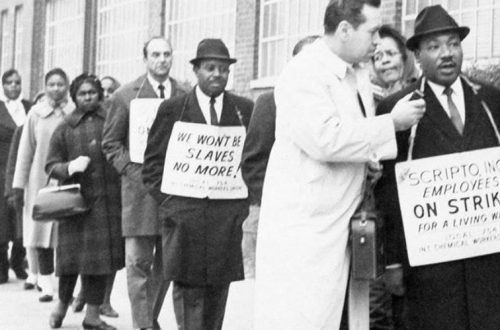May Day’s approaching, and here is a round up of some recent news of relevance to workers’ rights around the world and in the UK.
Beginning with the catastrophe in Dhaka, Norman Geras has written an excellent post which takes issue with those who invoke market forces in order to assert that it is natural and right – or at least inevitable – that Bangladeshi workers should have to put up with less safe working conditions than people in more developed countries.
Wanting to eradicate the human temptations that lure people into profiting from the unsafe working conditions of others may well be utopian; wanting to put in place limits that curb what they may freely do without incurring penalties is not only not utopian; we have seen it happen time and again in democratic societies.
…
There doesn’t seem like any good reason to restrict one’s conception of free choice to the way people express themselves through employment decisions. Human beings have a wide range of means of expression, amongst these political acts like voting, demonstrating, writing to the press, blogging, going on strike, and so forth.
On a rather more positive note, here is a story about women trade unionists working together in the Middle East. Last month 33 delegates met in Tunis to discuss ways of safeguarding women’s interests in the workplace.
At the end of two full days of discussion and presentations, participants set a shortlist of action priorities for the region. These include: building the capacity of women to engage as union members and leaders, demanding laws are enforced to ensure women’s rights and protection from violence and discrimination, addressing the impact of precarious work on women, and continuing to communicate and grow the support network for MENA women trade unionists, including through social media connections.
In the US low paid workers in the fast food industry, who are not formally unionised, have been engaging in industrial action in protest against low wages and poor conditions.
Labor unrest in low-wage service and retail sector workplaces has become increasingly prevalent over the last few years, as those sectors have come to occupy increasingly central roles in the U.S. economy. Low-wage jobs in those industries have driven post-recession job growth to a great degree, leading observers such as labor reporter Andrew Kroll to refer to the American economy in its current form as “the McJobs economy.”
I am always surprised by the lack of interest displayed by commenters on Socialist Unity when Andy Newman blogs about Carillion. Here’s the only comment his latest piece on the topic attracted, and yet it was a good post about an important issue, blacklisting. Here is the damning conclusion of the Scottish Parliamentary Select Committee’s Chair, Ian Davidson, in response to the evidence of workers being systematically blacklisted by construction companies over a number of years:
We are appalled by what we have discovered during our committee hearings. The Consulting Association was an organised conspiracy by big construction firms, to discriminate against workers who raised legitimate grievances over health and safety and other industrial issues.
And here are a few quotes from the database to give some idea of the reasons for putting a worker on the blacklist.
“After taking on showed signs of militancy over safety. “
“Subject is a shop steward and member of the TGWU. Is a troublemaker. If she is not a member of the CP her husband certainly is.”
“Involved in a dispute to try to enforce the main contractor to take responsibility for the non-payment of several weeks wages”
“While at xx , drew H&S issues to the attention of site manager been moved with two others (to avoid suspicion)”
“EETPU says no”
“Girlfriend has been involved in several marriages of convenience”
“Described self as a freemason”
“xx could perhaps be a son of xx”
Howard Fuller reports on an apparent breakdown of merger talks between Unite and PCS – apparently a stumbling block has been McCluskey’s support for Labour (a support which some of the party’s members wish he could find some other way to demonstrate!):
The reason behind this appears to be the actions of Mark Serwotka (PCS General Secretary) and the Socialist Party Grandees who saw McCluskey’s early General Secretary campaign as some kind of “betrayal” as his actions were prompted by a desire to assist the Labour Party.
Given the current row erupting in the Labour Party about the growing influence of trade unions in selection Prospective Parliamentary Candidates it’s hardly surprising McCluskey would be inclined more towards the Labour Party, of which Unite is a major financial backer, rather than the tiny and frankly irrelevant Trade Union & Socialist Coalition (TUSC) backed by the PCS leaders.
They laughingly appear to be condemning him for putting “party” interests before the merger! Pots & kettles coming from the sectarians of the Socialist Party methinks.
One of the most frustrating things about far left grandstanding is that it alienates people from unions at a time when conditions for workers are getting more stressful and rights are being eroded. Unsecure and unpredictable zero hour contracts are becoming increasingly common and, in another move which will diminish workers’ rights in favour of the employer, changes have recently come into effect which slash the time mandated for collective redundancy consultation before the first dismissals from 90 to 45 days. You can read about some of the other changes here, including the introduction of a fee for workers wanting to bring a case to an industrial tribunal.
